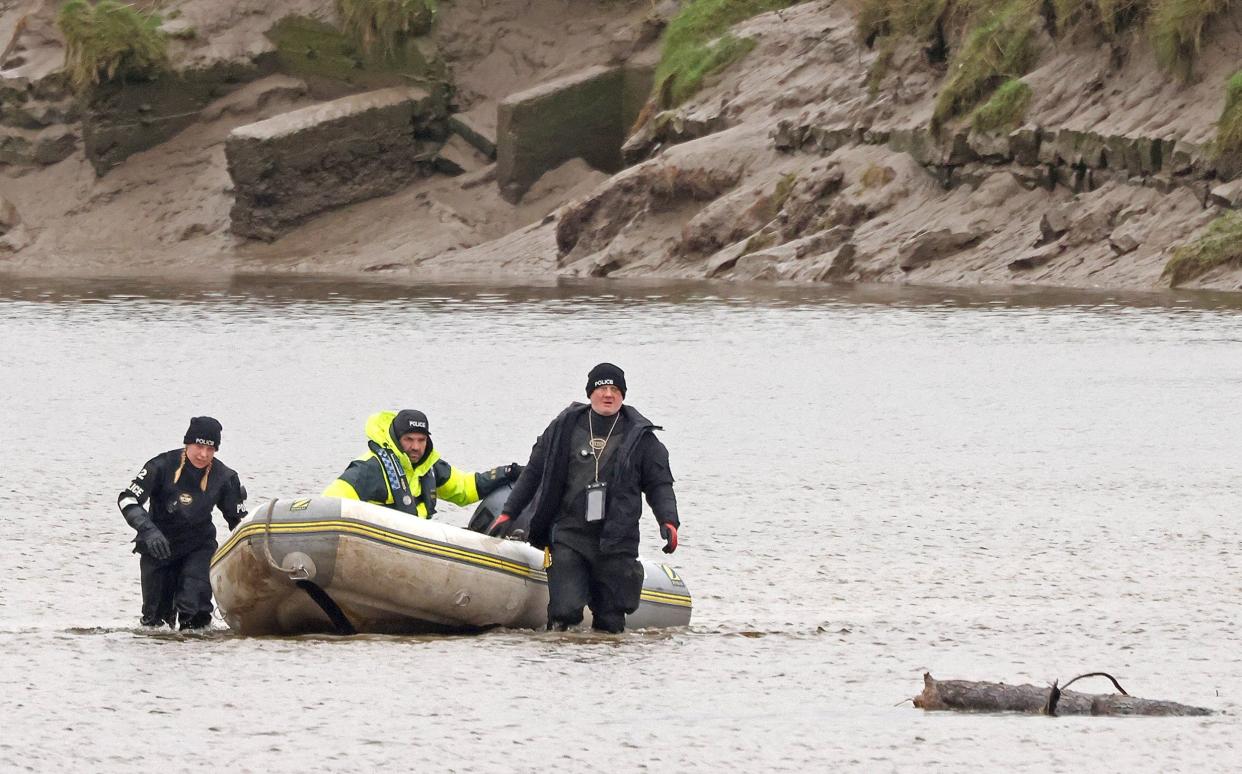Any trace of Nicola Bulley where she was last seen ‘will have gone’

Any trace of Nicola Bulley where she was last seen by the River Wyre has gone, former police officers have said amid growing calls for the search to move to land.
The stretch of grass by the river in the village of St Michael’s on Wyre, in Lancashire, was not immediately shut off to the public after Ms Bulley, a mother of two, went missing just over a fortnight ago.
It emerged last week that the alarm was only raised with police nearly two hours after she had disappeared.
Since then, dozens of investigators have trodden the grass around where the 45-year-old’s mobile phone and dog and its harness were found.
Experts have said that the disturbance to the land means there will be nothing left to find, amid growing pressure on Lancashire Constabulary to move its search to land.
It comes after Paul Ansell, Ms Bulley’s partner, said he was “100 per cent conviced” she did not fall in the river, contrary to the police’s theory.
On Saturday, officers confirmed that searches are “ongoing downstream from the weir to the estuary, as they have been for the last couple of days”.
But experts have questioned officers’ initial approach to scouring the scene where Ms Bulley was last seen on Jan 27.
A retired Lancashire Constabulary officer, who knows the area well, explained that riverbanks and fields such as the one in which Ms Bulley was last seen are “not very forensically friendly areas”.
“There will be fingerprints and bootprints from all kinds of people in the area, which would be no use to the police,” he said. He explained that, without the exact shoes Ms Bulley was wearing on the day, it would be near impossible to have tracked her footprints.
While police have said they are working on the assumption that she fell in the river accidentally, they said on Friday night that they were keeping an open mind and consulting the National Crime Agency for advice.
But Mark Williams-Thomas, a former detective, believes they need to increase their searches away from the river and warned them not to become “fixated” on one hypothesis.
“What they now need to do, is what I would defer to, is feet on the ground,” he told Channel 5. “They now need to start looking at the wider area, not just focused in relation to the river.
“We know their hypothesis is the river. But actually there are three aspects here, which are either: river, she walks off, or someone takes her. Those are your three hypotheses. Not just the water. They need to be very broad. The senior command course tells you ‘don’t be fixated by one element’.”
He also criticised the police’s lack of communication with the public and said they should be providing daily updates through the media.
Graham Wetton, a former Metropolitan Police officer, said: “From what I saw from the early stages it wasn’t secured, it wasn’t coned off or taped off. There was no inner outer cordon in effect at all.
“I’d like to think that was done with some forethought and some knowledge as to why they didn’t need to secure it. They didn’t think there were any forensic opportunities there because they were clearly convinced, from whatever information they’ve got, that she’s gone in the water.”
On Friday, Mr Ansell said he thought the mobile phone and harness found by the river “could possibly be a decoy”, and made a plea for police to widen their search and to scrutinise every house, garage, piece of land and outbuilding.
The force has said its search is ongoing, with over 40 detectives examining “many hundreds of pieces of information”, but continues with the hypothesis that Ms Bulley fell into the river “for some reason”.

 Yahoo News
Yahoo News 
